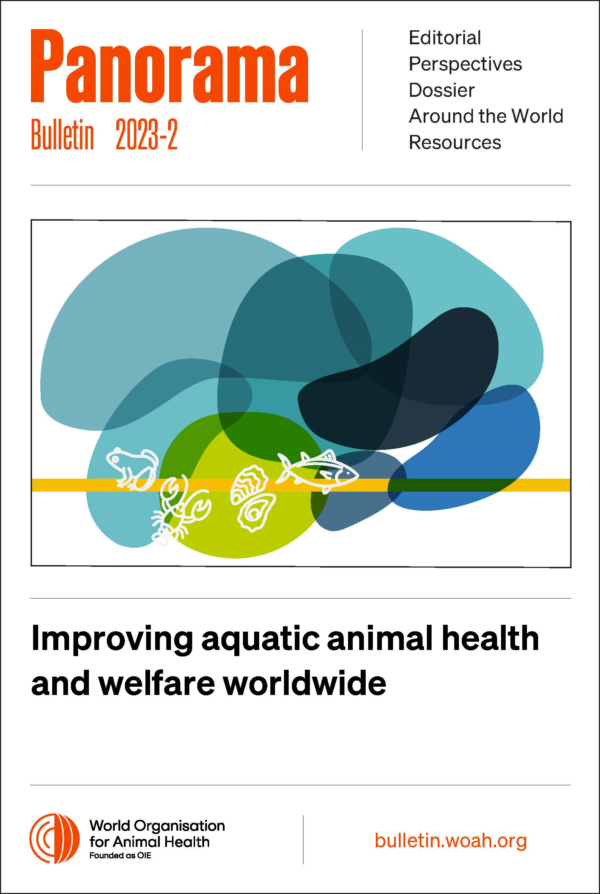Perspectives Posted on 2023-12-12 11:46:41
WOAH actions
Understanding why implementation of WOAH standards can be challenging
Keywords
Authors
L. Weber-Vintzel, Data Integration Department, World Organisation for Animal Health
Importance of Standards and their implementation
WOAH develops International Standards to improve aquatic animal health and welfare as well as the safety of the international trade in aquatic animals and their products. These Standards are compiled in the Aquatic Animal Health Code and the Manual of Diagnostic Tests for Aquatic Animals and provide specific recommendations to Members on:
- Members’ obligations to notify WOAH of aquatic animal diseases
- the prevention, early detection and control of diseases
- disease-specific recommendations for safe trade in aquatic animals and aquatic animal products
- antimicrobial use
- standardised approaches to the diagnosis of diseases.
A survey to better understand the challenges in implementing WOAH Standards
WOAH conducted a 48-question survey in April 2022 to better understand the barriers to implementation of standards and transparency in disease reporting. WOAH National Focal Points for Aquatic Animals were consulted and 65% of them contributed to the survey.
The main findings identified in the survey are provided below.
-
-
-
- A lack of resources and expertise in aquatic animal health was cited as the most common barrier to the implementation of standards.
- Members with limited access to relevant training and education on aquatic animal health and welfare reported more barriers to the implementation of WOAH Standards.
- The impact of disease notification on regional and international trade was considered an important barrier to the notification of diseases to WOAH.
- Many Members noted a lack of national legislation and regulations and/or national legislation and regulations developed with limited consideration of WOAH standards.
-
-
From the identification of challenges to actions
Following the analysis of the survey, key recommendations are being proposed: capacity-building activities targeting different areas, communication and advocacy campaigns, and clarification of roles and responsibilities in the Aquatic Animal Health Services. Some recommendations target WOAH and have been integrated into the WOAH Aquatic Animal Health Strategy, while some are suggestions for our Members wishing to develop their aquaculture sector or access trade markets through an enhanced implementation of WOAH Standards.
Main findings and recommendations of the survey will be made publicly available in the coming months.
https://doi.org/10.20506/bull.2023.2.3406












